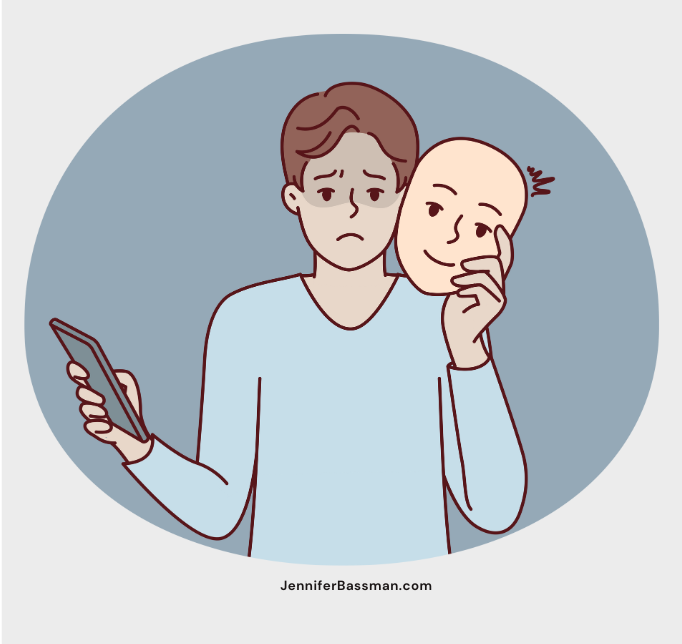When it comes to preventing, managing, or recovering from burnout, it’s not the length of your vacation or staycation that matters – it’s how you choose to use that time.
So, if you are taking a vacation or staycation this summer – or at any point in the near future – and you expect to return to work feeling refreshed, energized, and positive, you need to consider your mindset about taking a break from work rather than worry about how long you’ll be gone.
In fact, the length of time you take off from work doesn’t have nearly as much of an impact on your well-being as what you choose to think about.
Wait. What???
Sure, running away to an exotic destination and surrounding yourself in a new and exciting culture can be fun, but it won’t help your long-term mental and physical well-being if all you are thinking about is… work.
You Need to Make Up Your Mind That You Deserve Rest and Relaxation
The positive effects of time off are short-lived and disappear quickly if you don’t believe you deserve to take a break.
Why is your mindset about relaxation a priority? Thoughts about work or work interruptions keep your stress response active.
It’s more important to figure out how to psychologically detach from your work than it is to figure out how long your vacation will be. Your mind benefits far more from fun, pleasant activities and the ability to control your free time. If it just so happens you can do this for two weeks in Europe, just consider that an extra bonus.
The reason your mindset around your vacation is the most important thing to manage is because it directly contributes to the quality of your relaxation. If you genuinely believe that you deserve a break and you genuinely believe that it’s okay for your break to be all fun and no work, your mind is far more likely to react positively to the healing and rejuvenation that happens when you take a break.
The Staycation Alternative
Since relaxation isn’t about where you go or for how long, taking short, frequent staycations could be the ideal way to work on recovering from burnout. In fact, taking a staycation could be your secret weapon to keeping your stress under control and your mind refreshed.
I think a lot of us get stuck in work mode – even when you’re doing your best to chill out – because we have blurred the lines between work and home. We have gotten into the habit of checking our email at all hours, haven’t practiced detaching our brains from work, and give in to the panic of F.O.M.O. if we’re not “always on.”
Without these boundaries between work and home, you don’t recover sufficiently during short or long vacations. If your brain is preoccupied with anything other than staying on schedule for your next nap or the next stop of an incredible journey, you don’t benefit as much as you could from taking a complete break.
And, when you spend your work days exposed to prolonged periods of demanding and stressful situations, your recovery periods are often incomplete because you may be busy juggling the demands of family or other responsibilities that prevent you from getting adequate rest.
How to Get Your Mind Ready for Vacation
It’s entirely possible that you and I have different ideas of relaxation. I don’t find vacations where I hike and bike particularly restful. My idea of a good time is a chair by a pool or on the beach with a book and a beverage to be my ultimate nirvana. Even just a day or two of whatever you find fulfilling will have a stronger impact on your well-being than two weeks of vacation that has work sprinkled in.
Whatever floats your boat is where your mind needs to stay focused. To accomplish this, try these five strategies to take a work-free vacation:
Strategy #1: Think about what has kept previous vacations from being work-free. What did you worry about? What were you tempted to work on? Based on the answers to these questions, figure out what it will really take for you to disconnect from work.
Strategy #2: Do the prep work. Delegate work, projects, and clients. Also, communicate your expectation that you will be unreachable. It’s okay to block work numbers and emails while you are taking a break.
Strategy #3: Craft a useful out-of-office message. Direct anyone and everyone to other people and resources in your absence. Manage their expectations that all messages will be returned after a specific date. This should prevent those emergency break-through phone calls because you have provided alternatives for your presence and expertise.
Strategy #4: Prepare your inbox and desk for departure. The reason so many people feel compelled to check their email or messages while they are gone is because they fear what they will return to. Take the opportunity to create filters for your email that will organize your messages based on your priorities so you aren’t overwhelmed when you return. Clean your desk off before you leave so that you return to an organized environment, not a chaotic one.
Strategy #5: Tell yourself you are prepared and you deserve a break. Remind yourself that your mind and body need and deserve time away. List all of the benefits of taking a vacation and disconnecting from work. In the spirit of transparency, I write that list out and keep it on my phone so I can read it when I am tempted to “check in.”
Life is short.
Eat dessert first, work less, and vacation more!






